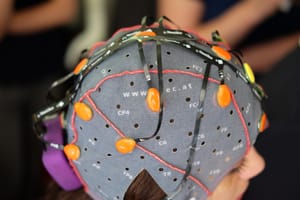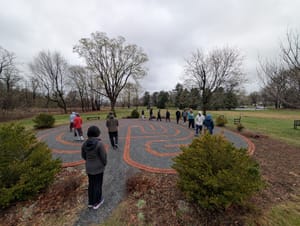Taking control of your social media use may be the most rewarding life hacking technique I know of, given its ratio of benefit to effort.
I like social media. Networks like Facebook, Twitter, and Snapchat have a powerful ability to keep us connected with other humans. For me, Twitter has functioned for at least 5 years as an indispensable pipeline of news, and it’s also the virtual gathering place of choice and the major self marketing platform for every journalist I know. Facebook, for its part, has enabled me to re-establish and maintain connections with friends from high school and college, as well as former work colleagues, to an extent I found impossible through email or (before that) letters, post cards, and telephone calls. I’m grateful for these advantages and for the differences they’ve made in my life.
But social networks, on the web and in their mobile app forms, are designed for maximum engagement. Let me put that a different way: Their interfaces capitalize on the human needs for connection and social validation in an attempt to maximize the amount you spend with them.
The consequence is that the best social networks are also maximally addictive, and maximally destructive to your ability to make decisions about how to focus your own attention.
Facebook is particularly good at this: In its latest earnings report, the network claimed that its nearly 1.7 billion users spend an average of 50 minutes per day with its apps (Facebook, Instagram, and Messenger). No other leisure activity comes close, with the exception of TV.
Like every other designer of apps and web sites, Facebook utilizes interactions and interface elements designed to keep you coming back. Did I get any likes? What is that comment that was just posted? Who else likes the photo I just shared? Oh, look, someone has responded to me, let’s see what they have to say!
All sites and apps that depend on your attention use a similar set of “evil” (or actually evil) interaction design tricks, so Facebook is not unique in this regard. It’s just that Facebook does this remarkably well.
In response, I have pared by my social media consumption by a lot, seeking to gain control over these media, rather than be controlled by them.
First I took a week off Facebook entirely, signing out from the website on both mobile and desktop browsers, and not installing the app. I also stayed away from Twitter, Instagram, and LinkedIn as much as possible. (I don’t use Snapchat or WhatsApp much so they were not an issue.) This detox is important for resetting your brain, I find.
When I returned to Facebook, I set some guidelines. Now I limit Facebook to once a day, outside working hours. When I do participate, I’m scanning for conversations among my notifications, not “likes,” and I’m trying to eliminate using the like button as much as possible. (Facebook actually works better for me when I skip the Likes.)
I turned off notifications for all of the social apps I still have installed. With Android, you can easily override any in-app settings (Settings > Sound & notification > App notifications) to prevent any app you choose from sending you any notifications at all. This helps reduce the artificial urgency that such apps aim to create. If I want to check Twitter, I check it — but only when I choose to do so.
I am sharply limiting and seeking to reduce my participation in Twitter. Other social networks may follow, depending on how much I’m able to avoid their more coercive elements.
I’m trying to be mindful of what I’m actually doing whenever I’m sitting in front of a screen.
Adding a mediating layer can help. The news app Nuzzel, for instance, lets me know which news stories my friends are talking about, without requiring me to wade through the sea of posts and tweets myself. Flipboard can work in a similar way.
The result of these techniques is that I have more focus, more time, and a more even emotional keel. I won’t pretend that this is a panacea. I still have a lot on my mind, I’m still stressed out by the news and by the things I have responsibility for. But for anyone who, like me, found deep and addictive engagement in Facebook and similar networks, going on a social media “diet” may be very helpful.
Do you have techniques for keeping yourself in control of the social media you use? I’d love to hear about them.
photo credit: Hack the Brain 2016 via photopin (license)



